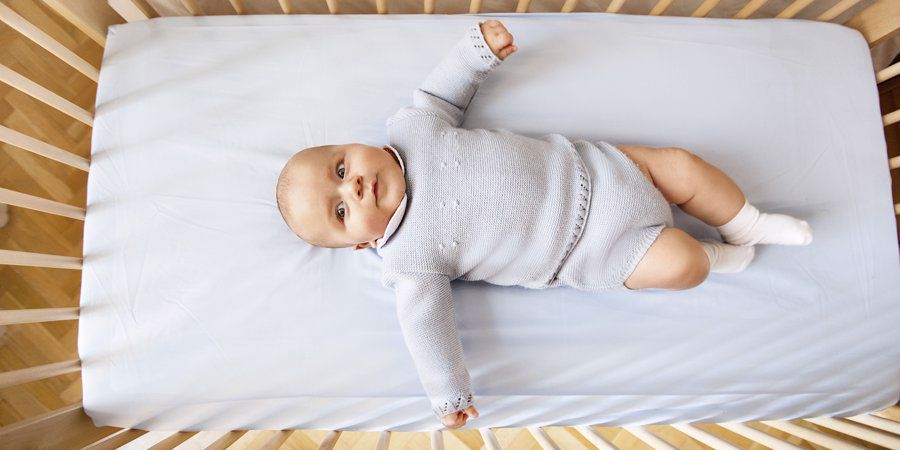Sudden Infant Death Syndrome (SIDS) sometimes known as ‘cot death’ is the sudden, unexpected and unexplained death of an apparently healthy baby.
Most deaths happen during the first 6 months of a baby’s life. Infants born prematurely or with a low birth weight are at greater risk, SIDS also tends to be slightly more common in baby boys.
SIDS usually occurs when a baby is asleep, although it can occasionally happen when they’re awake.
Parents can reduce the risk of SIDS by not smoking while pregnant or after the baby is born, and always placing the baby on their back when they sleep.
What causes SIDS?
The exact cause of SIDS is unknown, but it's thought to be down to a combination of factors.
Experts believe SIDS occurs at a particular stage in a baby's development and that it affects babies vulnerable to certain environmental stresses.
This vulnerability may be caused by being born prematurely or having a low birth weight, or because of other reasons that have not been identified yet.
Environmental stresses could include tobacco smoke, getting tangled in bedding, a minor illness or a breathing obstruction. There's also an association between co-sleeping (sleeping with your baby on a bed, sofa or chair) and SIDS.
Babies who die of SIDS are thought to have problems in the way they respond to these stresses and how they regulate their heart rate, breathing and temperature.
Although the cause of SIDS is not fully understood, there are a number of things you can do to reduce the risk.

What can I do to help prevent SIDS?
Below is a list of things you can do to help prevent SIDS.
Do:
- Always place your baby on their back to sleep
- Place your baby in the "feet to foot" position – with their feet touching the end of the cot, Moses basket, or pram
- Keep your baby's head uncovered – their blanket should be tucked in no higher than their shoulders
- Let your baby sleep in a cot or Moses basket in the same room as you for the first 6 months
- Use a mattress that's firm, flat, waterproof and in good condition
- Breastfeed your baby, if you can.
Do not:
- Smoke during pregnancy or let anyone smoke in the same room as your baby – both before and after birth
- Sleep on a bed, sofa or armchair with your baby
- Share a bed with your baby if you or your partner smoke or take drugs, or if you've been drinking alcohol
- Let your baby get too hot or too cold – a room temperature of 16C to 20C, with light bedding or a lightweight baby sleeping bag, will provide a comfortable sleeping environment for your baby.
The Lullaby Trust provides advice and support for bereaved families. Specially trained advisers are available on its helpline – the number is 0808 802 6868 and it's open Monday to Friday (10 am to 5 pm), and at weekends and public holidays (6 pm to 10 pm).


